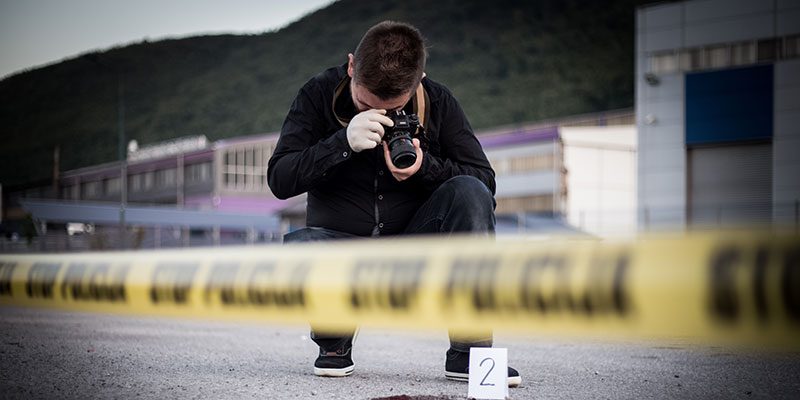About forensic investigation
Physical evidence – from fingerprints and body fluids to firearms marks and computer data – is often the key to solving crime. In this innovative forensic investigation program, you’ll learn to apply your knowledge of forensic science as a crime scene investigator.
Advanced, hands-on training is integral to PennWest California’s forensic investigations degree, a concentration within the B.S. in Criminal Justice program. You’ll learn forensic science methodologies and investigative techniques, including how to:
- Categorize, identify, collect and process physical evidence.
- Analyze evidence such as fingerprints, blood spatter, DNA and more.
- Examine and analyze firearms marks and computer/digital evidence.
- Maintain the proper “chain of custody” in forensic investigations.
- Use digital technology and other tools to document and investigate crime scenes.
Position yourself for career sucess.
Forensic investigation programs are interdisciplinary by nature. This degree program provides a solid foundation in the field of criminal justice, plus required courses in forensic science, criminal investigation, law and evidence, and forensic law.
Related electives fuel your passion for solving crimes, with courses such as High-Tech Crime Investigation, Crime Scene Imaging, Cyber Security and Computer Forensics.
You’ll graduate career-ready and prepared for certification as a crime scene investigator, analyst, reconstructionist or photographer through the International Association for Identification, “the oldest and largest forensic association in the world.”



